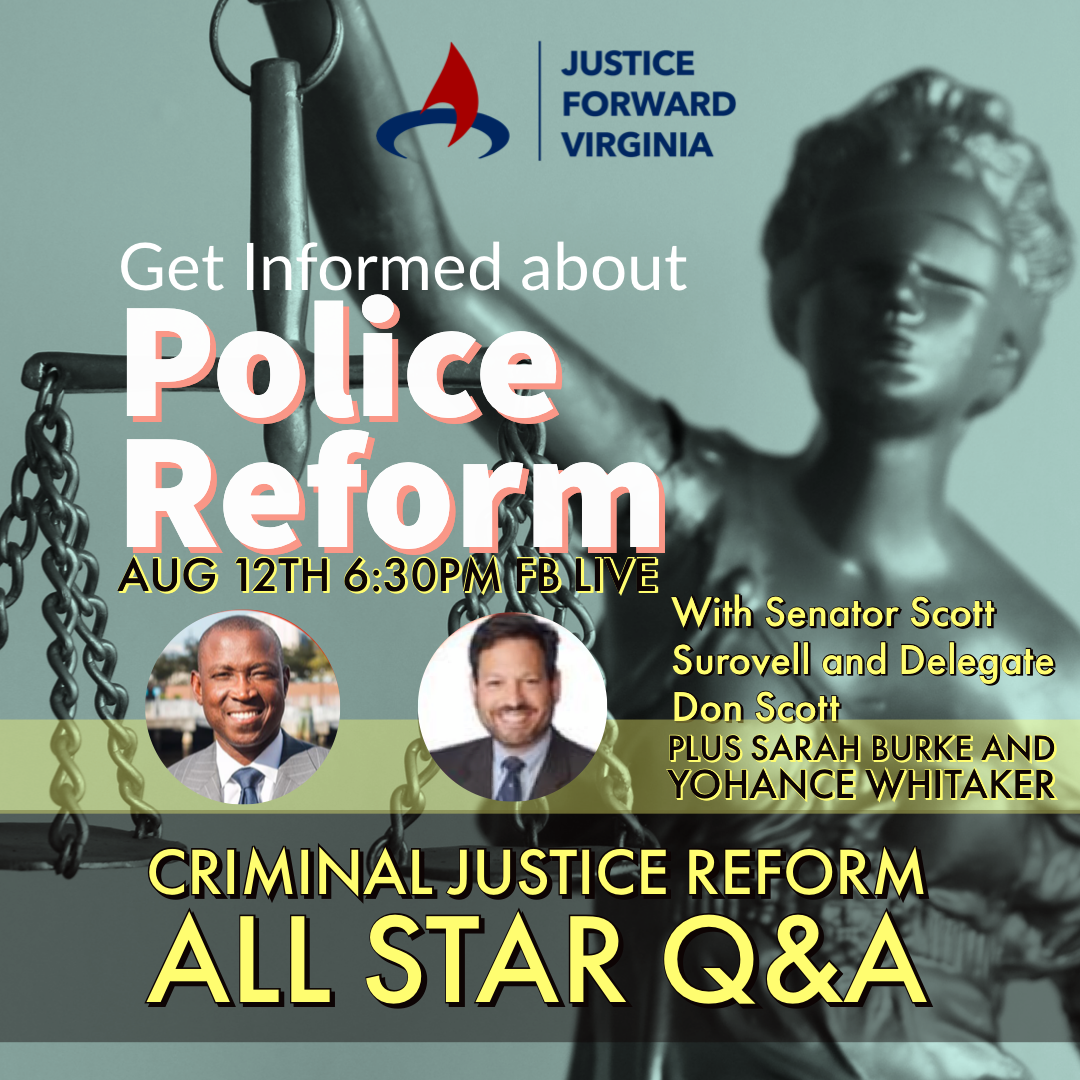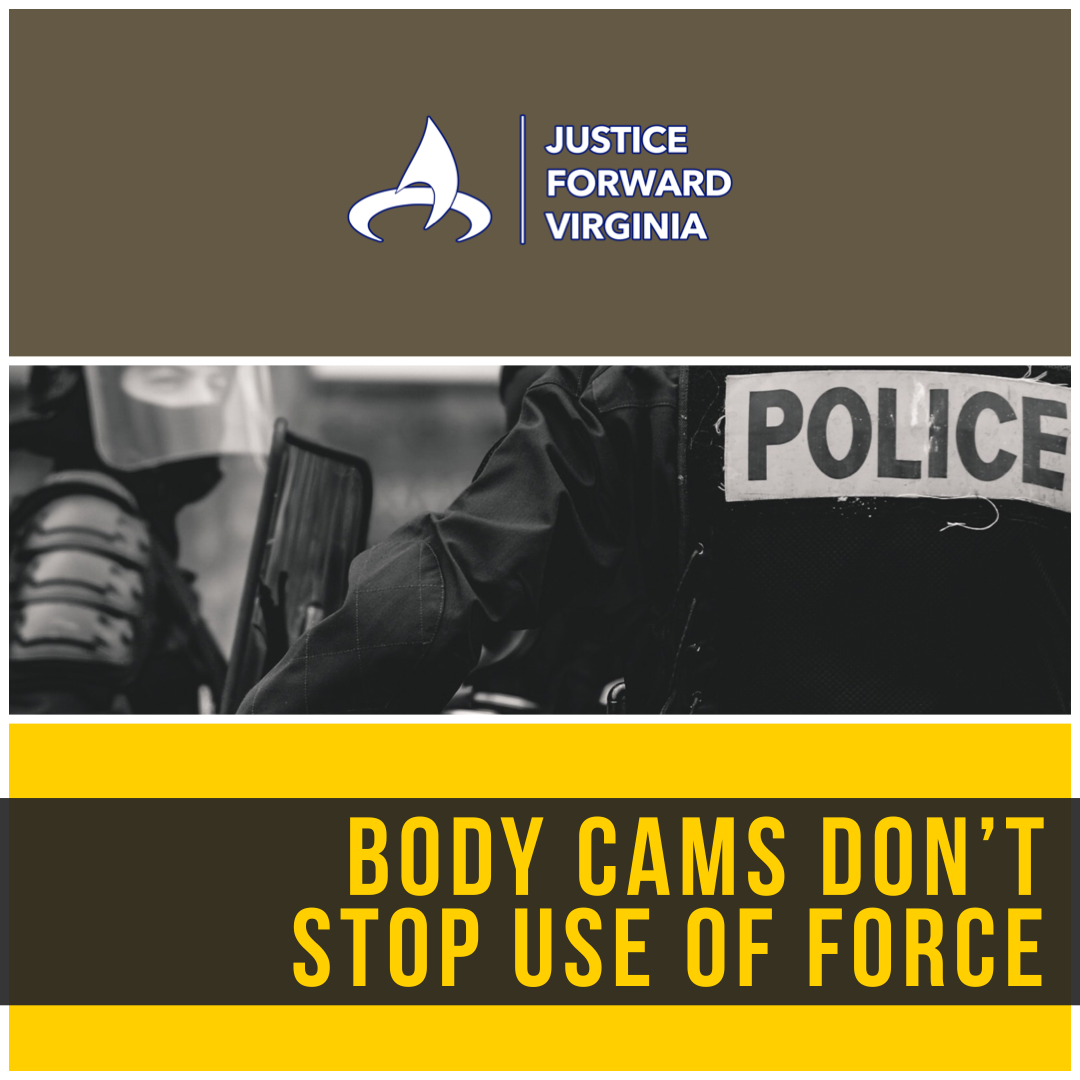Community Oversight Paves the Road to Police Accountability
In Virginia, law enforcement operates under a shroud of secrecy with far less democratic accountability than our other public institutions. Civilian Oversight Bodies (sometimes referred to as Civilian Review Boards or “CRBs”) in Virginia are limited in power under current state law. Police departments are able to control the Oversight Bodies’ access to the data, evidence, witnesses, and personnel files that they need for meaningful oversight.
A first step: The General Assembly should pass legislation permitting localities to establish Civilian Oversight Bodies. Localities should be able to give these bodies subpoena power to compel the production of documents and witnesses, allowing them to gather, analyze, and review information; produce public reports; and to make informed recommendations related to policing issues of significant public interest. Localities should also be able to empower these bodies to make the final decision on disciplining officers in certain cases.
What is meaningful civilian oversight?
A FIRST STEP
Oversight is an important first step toward police accountability and transparency in our communities.
PROACTIVE
Not just reviewing misconduct complaints.
Can include independent analysis of police data related to Use of Force, Stop-and-Frisk, or other procedures; financial auditing and recommendations; review of policies and proposals to address systemic issues; and more.
INDEPENDENT
Must be independent authorities, not subsidiaries of the police departments they oversee.
INDIVIDUALIZED
for each locality based on specific needs of the community.
This requires broad (not prescriptive) enabling legislation for each municipality to establish a board that meets their unique needs.
COMMUNITY-DRIVEN
Oversight should be conducted—in part or in whole—by the people most impacted by policing in their communities.
EMPOWERED
Subpoena (witnesses) and subpoena duces tecum (documents) authority.
The statewide repeal of laws that prevent public access to police records on discipline and other matters of public concern.
Final disciplinary and/or decision-making authority
TRANSPARENT
All meetings and reports should be public and all operations should be transparent.
AN INVESTMENT IN OUR COMMUNITIES
Financial and administrative support (as requested by the individual oversight body) by municipalities is critical to the success of police oversight.
AN ITERATIVE PROCESS
Meaningful civilian oversight faces numerous hurdles in Virginia due to the overwhelming protections law enforcement officers have, including statutory procedural guarantees when faced with discipline or firing that no other public official enjoys, qualified immunity, and more. Oversight will change as these landscapes change
Pitfalls to Avoid
OVERSIGHT IS NOT A ONE-STEP SOLUTION FOR ALL POLICING ISSUES
OVERSIGHT IS NOT SOLELY A REACTIVE “CIVILIAN REVIEW BOARD”
“Civilian Review Board” indicates that the only power an Oversight Body has is to “review” individual complaints. It leaves out the ability independently investigate (rather than relying on the police department’s records) and to engage in work focused on systemic problems.
OVERSIGHT IS NOT CHOSEN OR HOUSED BY POLICE DEPARTMENTS
Appointees should not be chosen by the Chief of Police.
Oversight bodies should be independent of the Police Department in all ways.
OVERSIGHT IS NOT A STATEWIDE BODY
A statewide CRB overseeing all law enforcement agencies in the Commonwealth would defy best practices identified by the National Association of Civilian Oversight of Law Enforcement (“NACOLE”).
OVERSIGHT IS NOT DONE FROM THE TOP-DOWN
Localities should be encouraged and empowered to create strict CRB membership criteria based on the history and patterns of local policing to ensure that communities most impacted by policing are represented.
OVERSIGHT IS NOT PERFORMATIVE
Virginia laws already afford extraordinary protections to law enforcement officers and conceal extensive information regarding their work from the public. Civilian oversight bodies must be given real power or else they risk being performative political statements with no actual “teeth” or power.
OVERSIGHT IS NOT SECRETIVE
This is a public-facing process and all efforts should be made by the Legislature and localities to ensure that policing matters are able to be discussed in public settings.
OVERSIGHT IS NOT SOLELY VOLUNTEER-BASED
Staff can and should be able to be hired by localities, with statewide, grant-based, and/or local financial support.
OVERSIGHT IS NOT A QUICK FIX
Community-Police distrust is not new. We are at a critical moment in Virginia’s history and, as Civilian Oversight Bodies become more widespread, additional statewide legislative pushes may be needed to ensure meaningful oversight and community legitimacy of the oversight process.
Legal Aid Justice Center, National Association for Civilian Oversight of Law Enforcement, and Justice Forward Virginia contributed to this article.




